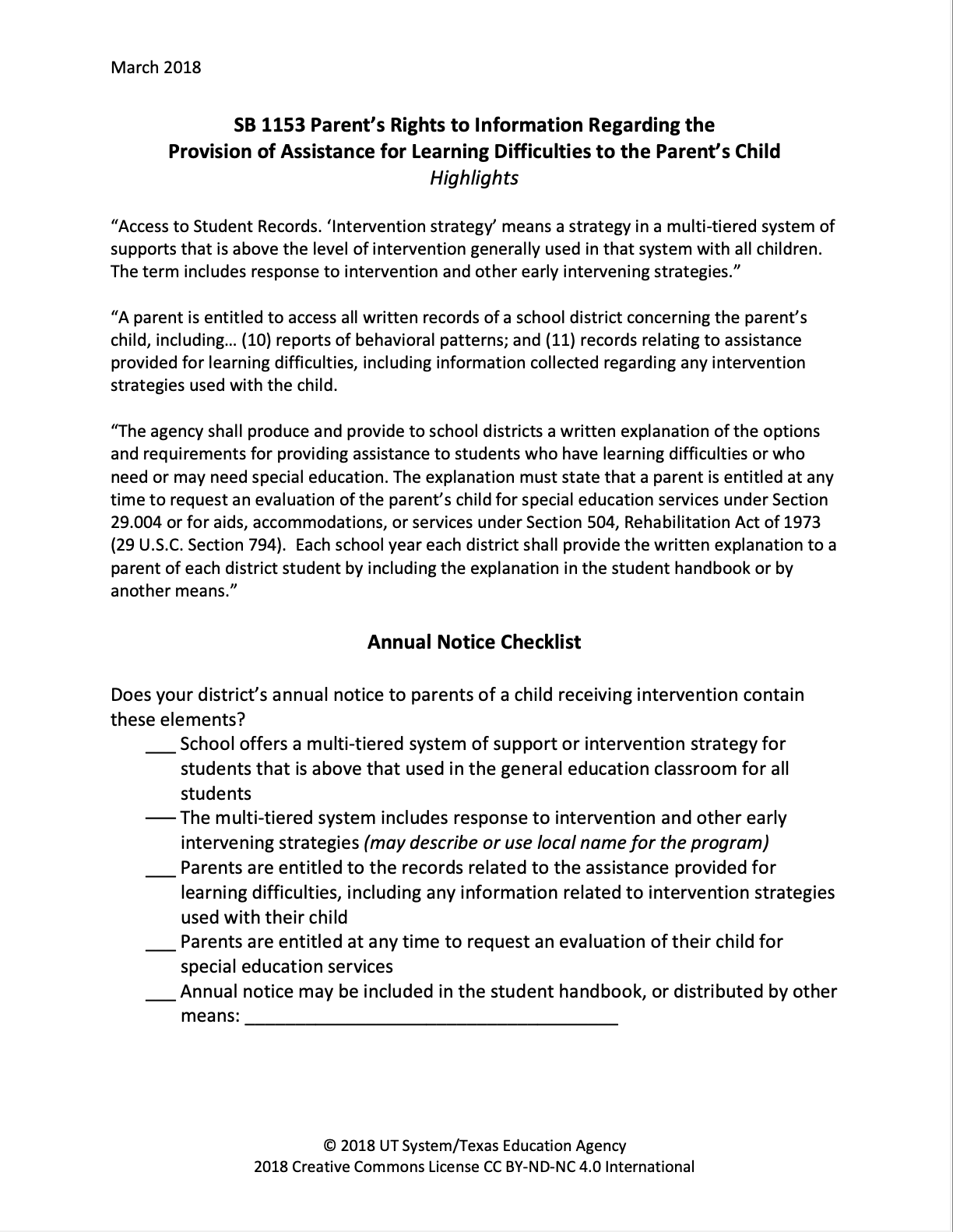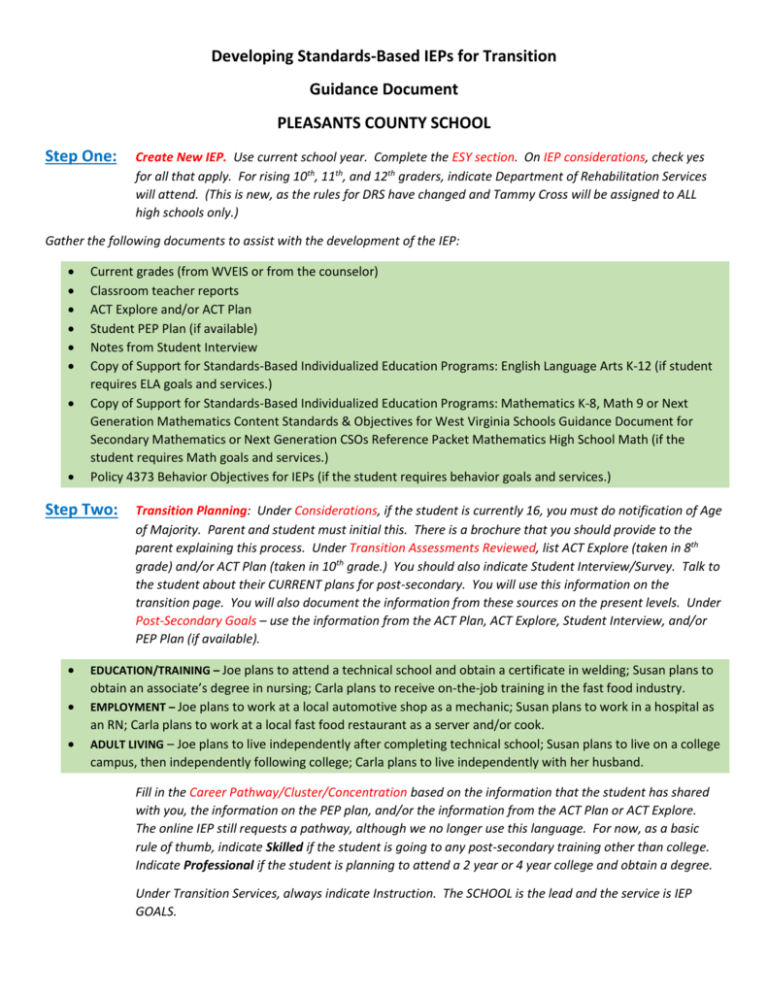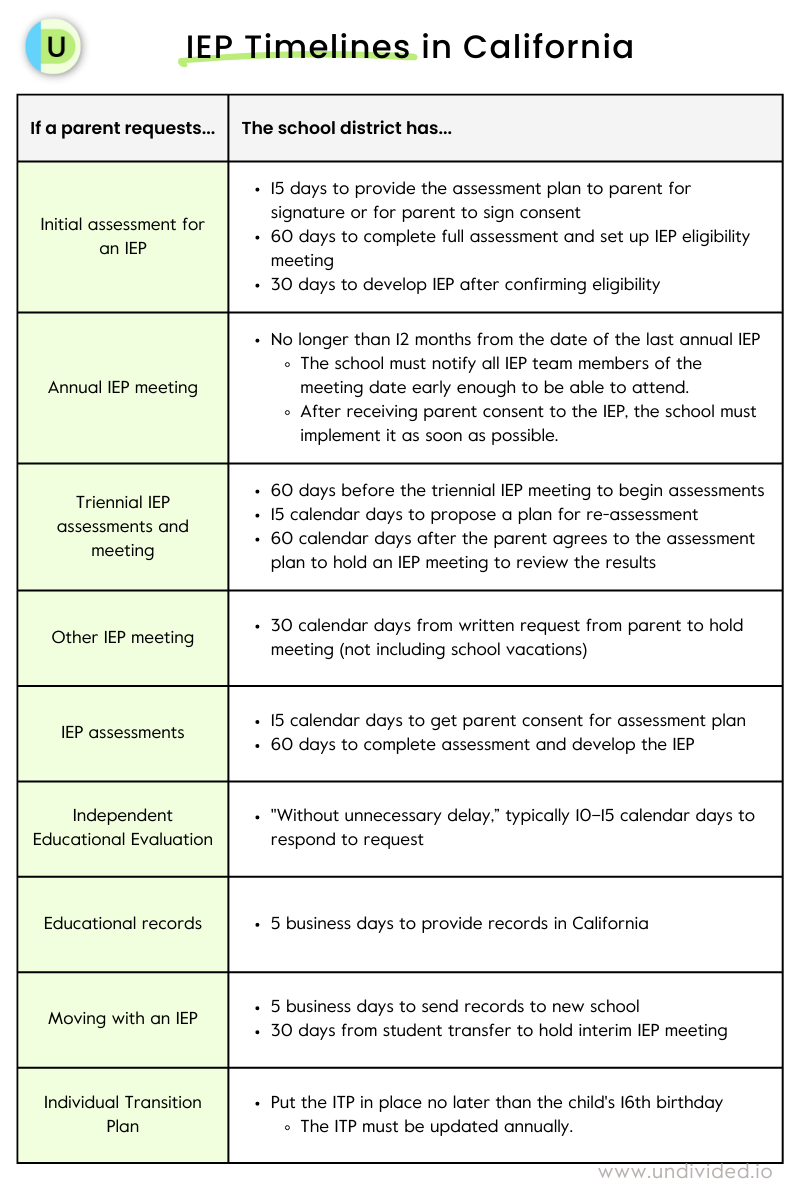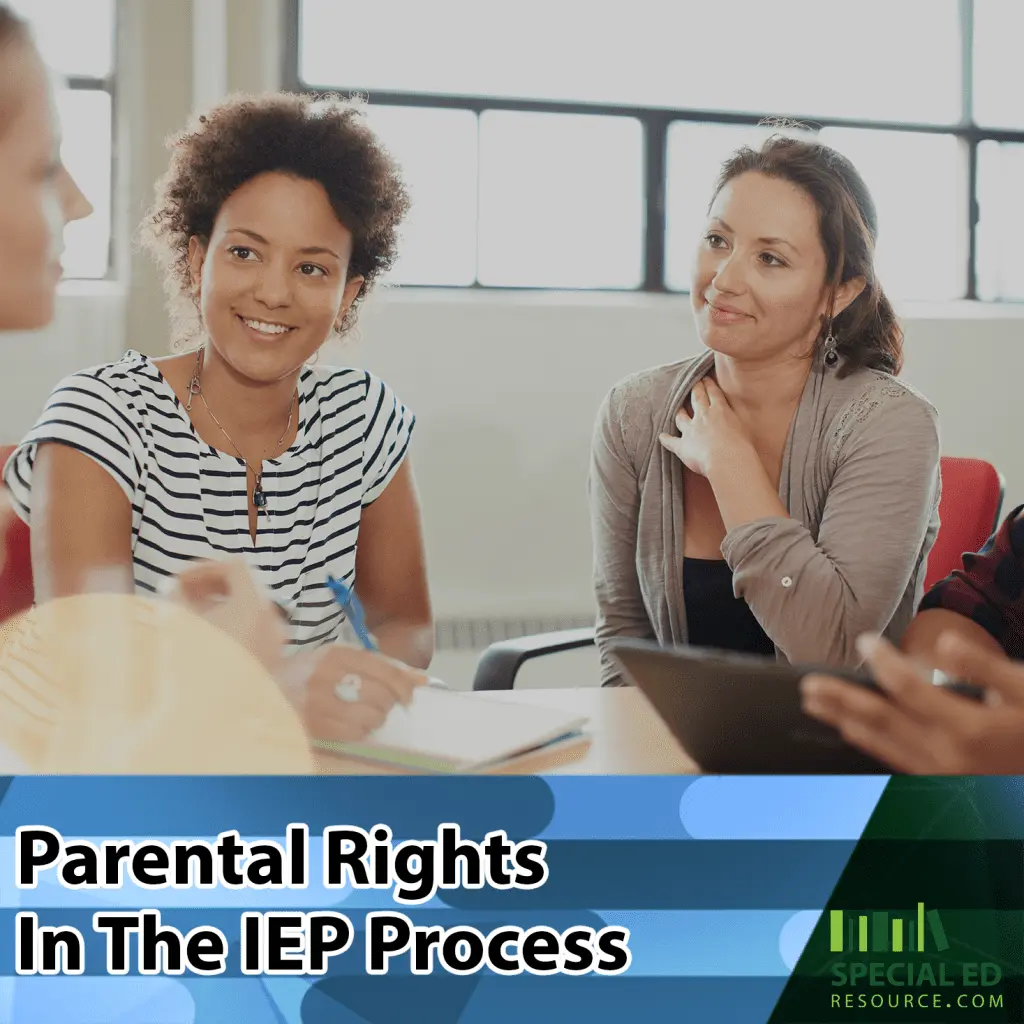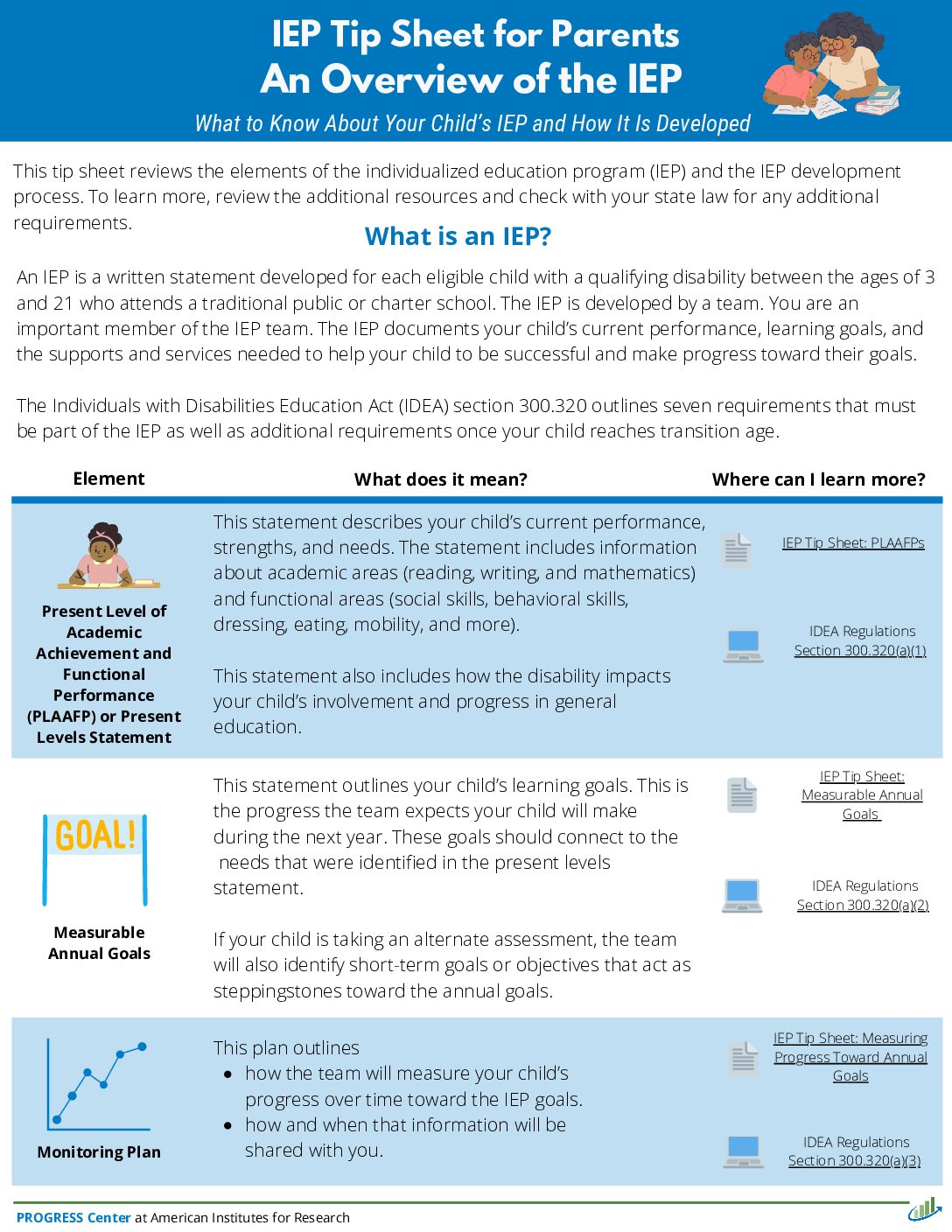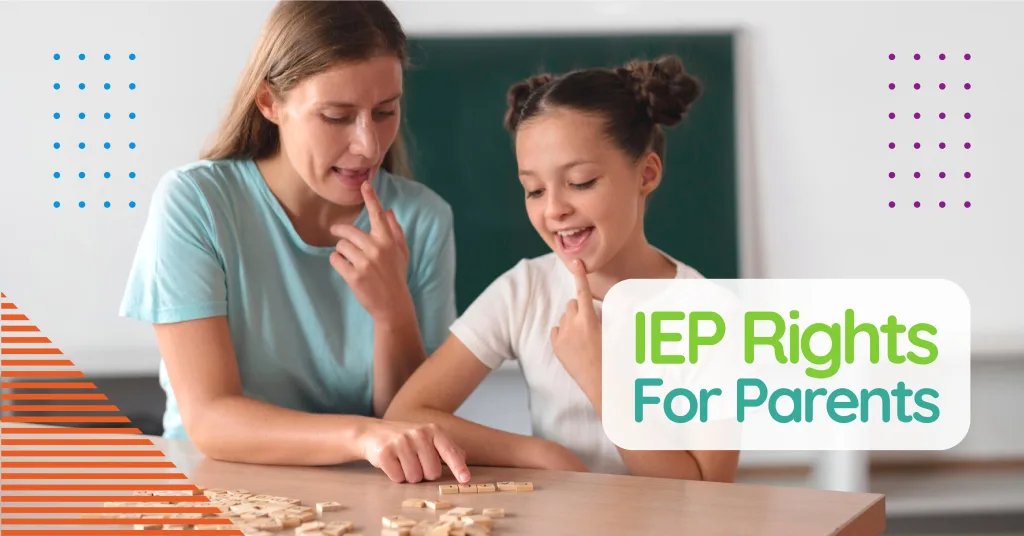Iep Parent Rights Cheat Sheet California
Iep Parent Rights Cheat Sheet California - Parents have the right to participate in individualized education program (iep) meetings about the special education eligibility,. An iep is a written statement developed for each eligible child with a qualifying disability between the ages of 3 and 21 who. In order to protect the rights of the child, school districts must ensure that an individual is assigned to act as a surrogate parent for the. Since 1974, federal legislation has provided the right for children with disabilities to receive an appropriate public education. This information provides you as parents, legal guardians, and surrogate parents of children with disabilities from 3 years of age through age 21. An early start guide for families was developed under the leadership of the department of developmental services. This page offers resources for parents, foster parents, guardians, and others who care for a child who is not doing well in school.
This page offers resources for parents, foster parents, guardians, and others who care for a child who is not doing well in school. An early start guide for families was developed under the leadership of the department of developmental services. This information provides you as parents, legal guardians, and surrogate parents of children with disabilities from 3 years of age through age 21. Since 1974, federal legislation has provided the right for children with disabilities to receive an appropriate public education. An iep is a written statement developed for each eligible child with a qualifying disability between the ages of 3 and 21 who. Parents have the right to participate in individualized education program (iep) meetings about the special education eligibility,. In order to protect the rights of the child, school districts must ensure that an individual is assigned to act as a surrogate parent for the.
In order to protect the rights of the child, school districts must ensure that an individual is assigned to act as a surrogate parent for the. This information provides you as parents, legal guardians, and surrogate parents of children with disabilities from 3 years of age through age 21. An iep is a written statement developed for each eligible child with a qualifying disability between the ages of 3 and 21 who. An early start guide for families was developed under the leadership of the department of developmental services. Since 1974, federal legislation has provided the right for children with disabilities to receive an appropriate public education. This page offers resources for parents, foster parents, guardians, and others who care for a child who is not doing well in school. Parents have the right to participate in individualized education program (iep) meetings about the special education eligibility,.
Parent Notification Checklists and Sample Letters The Meadows Center
An iep is a written statement developed for each eligible child with a qualifying disability between the ages of 3 and 21 who. In order to protect the rights of the child, school districts must ensure that an individual is assigned to act as a surrogate parent for the. Parents have the right to participate in individualized education program (iep).
Procedures Transition IEP Cheat Sheet
In order to protect the rights of the child, school districts must ensure that an individual is assigned to act as a surrogate parent for the. An early start guide for families was developed under the leadership of the department of developmental services. Parents have the right to participate in individualized education program (iep) meetings about the special education eligibility,..
IEP Timelines, 45 OFF gbuhamovniki.ru
An iep is a written statement developed for each eligible child with a qualifying disability between the ages of 3 and 21 who. This page offers resources for parents, foster parents, guardians, and others who care for a child who is not doing well in school. Since 1974, federal legislation has provided the right for children with disabilities to receive.
Parental Rights In The IEP Process Special Education Resource
An early start guide for families was developed under the leadership of the department of developmental services. This page offers resources for parents, foster parents, guardians, and others who care for a child who is not doing well in school. In order to protect the rights of the child, school districts must ensure that an individual is assigned to act.
Iep Cheat Sheet Individualized Education Program Learning Styles
Since 1974, federal legislation has provided the right for children with disabilities to receive an appropriate public education. This information provides you as parents, legal guardians, and surrogate parents of children with disabilities from 3 years of age through age 21. An early start guide for families was developed under the leadership of the department of developmental services. This page.
IEP Tip Sheet for Parents An Overview of the IEP What to Know About
This information provides you as parents, legal guardians, and surrogate parents of children with disabilities from 3 years of age through age 21. An early start guide for families was developed under the leadership of the department of developmental services. In order to protect the rights of the child, school districts must ensure that an individual is assigned to act.
Parent Handout Cheat Sheet Special Education Rights Right to
Parents have the right to participate in individualized education program (iep) meetings about the special education eligibility,. Since 1974, federal legislation has provided the right for children with disabilities to receive an appropriate public education. An early start guide for families was developed under the leadership of the department of developmental services. An iep is a written statement developed for.
What are your rights in the IEP process? in 2024 Iep, Parenting fail
Since 1974, federal legislation has provided the right for children with disabilities to receive an appropriate public education. In order to protect the rights of the child, school districts must ensure that an individual is assigned to act as a surrogate parent for the. Parents have the right to participate in individualized education program (iep) meetings about the special education.
IEP Rights for Parents Know Your Role & Power
This information provides you as parents, legal guardians, and surrogate parents of children with disabilities from 3 years of age through age 21. An iep is a written statement developed for each eligible child with a qualifying disability between the ages of 3 and 21 who. This page offers resources for parents, foster parents, guardians, and others who care for.
Parents Helping Parents Advocating for Your Child with Special Needs
An early start guide for families was developed under the leadership of the department of developmental services. Since 1974, federal legislation has provided the right for children with disabilities to receive an appropriate public education. This information provides you as parents, legal guardians, and surrogate parents of children with disabilities from 3 years of age through age 21. An iep.
Since 1974, Federal Legislation Has Provided The Right For Children With Disabilities To Receive An Appropriate Public Education.
An iep is a written statement developed for each eligible child with a qualifying disability between the ages of 3 and 21 who. Parents have the right to participate in individualized education program (iep) meetings about the special education eligibility,. In order to protect the rights of the child, school districts must ensure that an individual is assigned to act as a surrogate parent for the. An early start guide for families was developed under the leadership of the department of developmental services.
This Page Offers Resources For Parents, Foster Parents, Guardians, And Others Who Care For A Child Who Is Not Doing Well In School.
This information provides you as parents, legal guardians, and surrogate parents of children with disabilities from 3 years of age through age 21.
